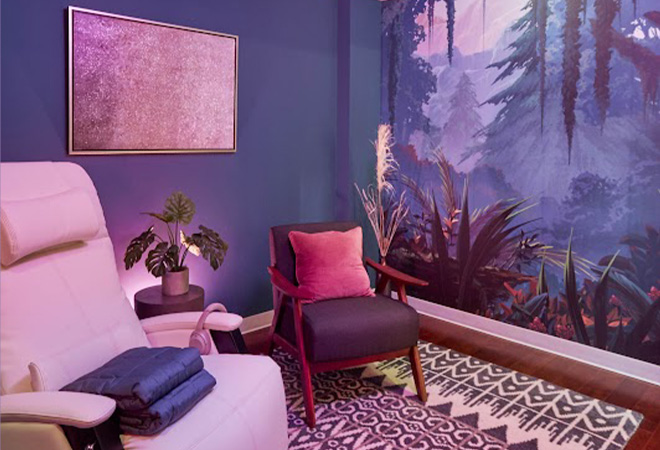BeautyMatter first connected with Ultra Violet Futures co-founder Anna Butterworth when the femtech forecasting agency launched in August 2021. Fast-forward to 2022, and the company has debuted its FemTech Futures 2023 report, a guide for the soon-to-be $1.186 trillion global market by 2027.
Working across the 4 macro trends of Hybrid Health, Enhanced Therapies, Well-th Economy, and Radical Inclusivity 2.0, the document delves into developments like the rise of techceuticals (tools for digital hygiene practices in the metaverse) as healthcare advances in its online manifestations, citing virtual clinics such as Happiness House and VR prescription services including XRHealth.


The next chapter will see physical touch introduced into the realm via tools like Facebook’s artificial skin tool ReSkin, and the Neurosphere Virtual Clinic’s neuromodulation software, ultimately incorporating more human elements into a previously sterile environment, which is especially essential in the femtech realm. “With the telehealth industry experiencing unprecedented investment and consumer demand we forecast a race between clinical giants to build their digital real estate with doors opening to patients in 2023,” the report states.
Beyond the metaverse, alternative therapies will become more mainstream, with psychedelic VR treatments gaining wider adoption. In regards to personal pleasure, sex toy designers are eyeing bespoke product designs that look beyond traditional phallic shapes and silicone materials. Other product innovations include transdermal patches by Fleur Marché, which offer convenient health solutions for sleep, stress relief, and energy levels. Looking beyond the consumer market, the gender health/wealth/pay gap will narrow, with more queer/trans-friendly healthcare now on the horizon, led through not only a redefining of gender-focused vocabulary, but also a plethora of apps and initiatives offering services specifically tailored to the LGBTQIA+ community.
“Health, wealth and general wellbeing are intrinsically linked and we must take a more holistic approach in order to become a progressive industry,” proclaims Ultra Violet Futures co-founder Rhiannon Jones. “Mark my words: only then can we truly serve the unique health needs of women and marginalised health groups with cutting edge innovation.”